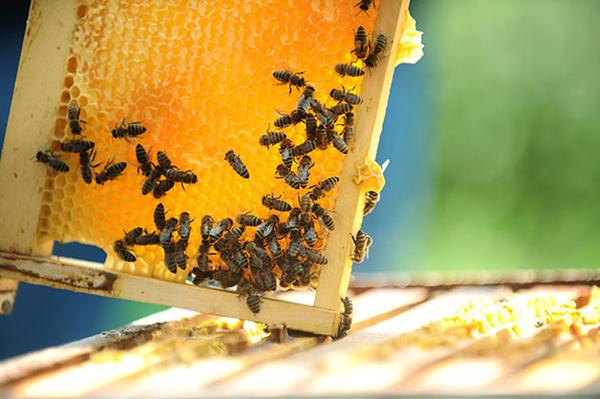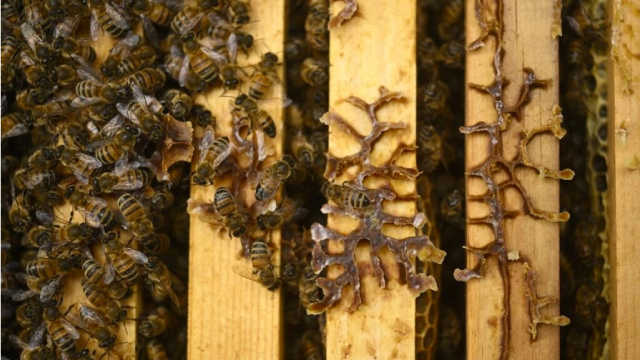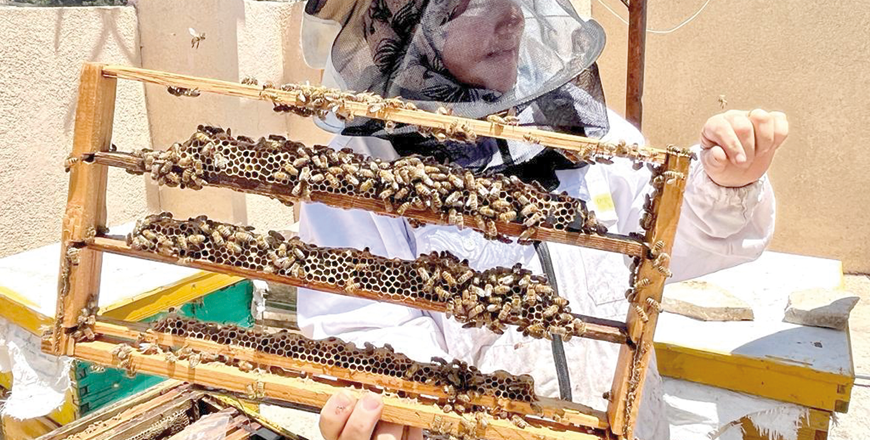You are here
Cuba’s organic honey exports create buzz as bees die off elsewhere
By Reuters - Mar 22,2016 - Last updated at Mar 22,2016

Photo courtesy of soworganic.com
SAN ANTONIO DE LOS BANOS, Cuba — Long known for its cigars and rum, Cuba has added organic honey to its list of key agricultural exports, creating a buzz among farmers as pesticide use has been linked to declining bee populations elsewhere.
Organic honey has become Cuba’s fourth most valuable agricultural export behind fish products, tobacco and drinks, but ahead of the Caribbean island’s more famous sugar and coffee, said Theodour Friedrich, the UN Food and Agriculture Organisation’s (FAO) representative for Cuba.
“All of [Cuba’s] honey can be certified as organic,” Friedrich told the Thomson Reuters Foundation. “Its honey has a very specific, typical taste; in monetary value, it’s a high ranking product.”
After the collapse in 1991 of the Soviet Union, Cuba’s main trading partner, the island was unable to afford pesticides due to a lack of foreign currency, coupled with the US trade embargo. By necessity, the government embraced organic agriculture, and the policies have largely stuck.
Now that the United States is easing its embargo following the restoration of diplomatic ties last year, Cuba’s organic honey exporters could see significant growth if the government supports the industry, beekeepers said.
Cuba produced more than 7,200 tonnes of organic honey in 2014, worth about $23.3 million, according to government statistics cited by the FAO.
The country’s industry is still tiny compared with honey heavyweights such as China, Turkey and Argentina. But with a commodity worth more per litre than oil, Cuban honey producers believe they could be on the cusp of a lucrative era.
Big dreams, little cash
With 80 boxes swarming with bees, each producing 45kg of honey per year, farm manager Javier Alfonso believes Cuba’s exports could grow markedly in the coming years.
His apiary, down a dirt track in San Antonio de los Banos, a farming town an hour’s drive from the capital Havana, was built from scratch by employees, Alfonso said.
“There is just a bit of production now, but it can get bigger,” he said, looking at the rows of colourful wooden boxes.
Like other Cuban bee farmers, he sells honey exclusively to the government, which pays him according to the world market price and then takes responsibility for marketing the product overseas.
Most of Cuba’s honey exports go to Europe, he said. He would like to be able to borrow money to expand production, but getting credit is difficult, he said, so for now his team of farmers build their own infrastructure for the bees.
“It’s a very natural environment here,” said Raul Vasquez, a farm employee. “The government is not allowed to sell us chemicals — this could be the reason why the bees aren’t dying here” as they have been in other places.
Organic advantage
While Cuba’s small, organic honey industry aims to reap the rewards of increased trade with the United States, honey producers in other regions are under threat, industry officials said.
Beekeepers in the United States, Canada and other regions have long complained that pesticides are responsible for killing their bees and hurting the honey industry more broadly.
The US Environmental Protection Agency released a study in January, indicating that a widely-used insecticide used on cotton plants and citrus groves can harm bee populations.
“I don’t think there are any doubts that populations of honeybees [in the United States and Europe] have declined... since the Second World War,” Norman Carreck, science director of the UK-based International Bee Research Association told the Thomson Reuters Foundation.
Climate change, fewer places for wild bees to nest, shifts in land use, diseases and pesticides are blamed for the decline, he said.
Because it is pesticide free, Cuba’s organic bee industry could act as protection from the problems hitting other honey exporters, said Friedrich, and could be a growing income stream for the island’s farmers.
“The overall use of pesticides is fairly controlled”, he said. “Cuba has been immune to the bee die-offs [hitting other regions].”
Related Articles
AMMAN — When she started working with bees and cattle around 15 years ago, Sameera Mouawad said “she knew nothing about bees or how they wor
QUIMPER, France — Bees pollinate 71 of the 100 crop species that provide 90 per cent of food worldwide.
JERASH — Around 48km north of Amman in Jerash Governorate, Muna Manfalouti, a beekeeper for nearly four decades, lives a life emblematic of both the undying spirit for Jordanian women and the stark toll of climate change on a treasured trade.

















